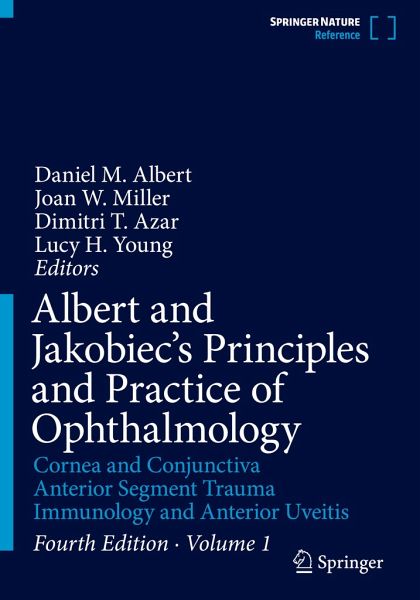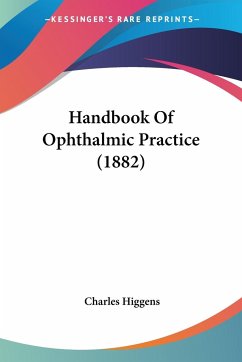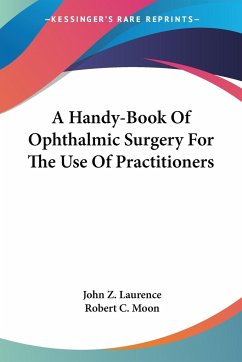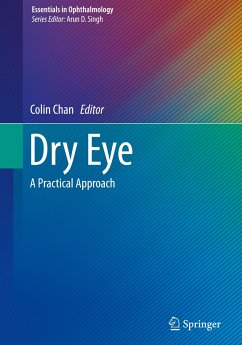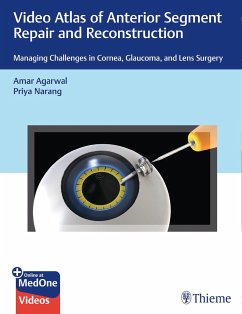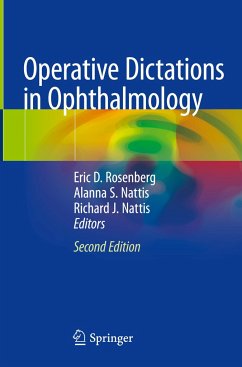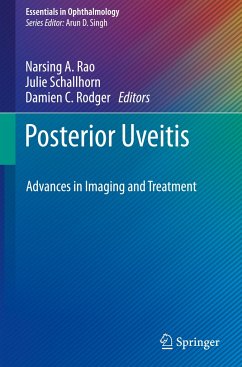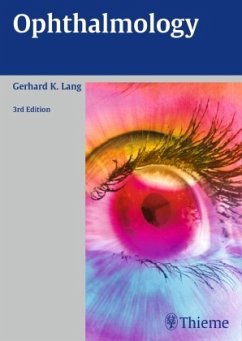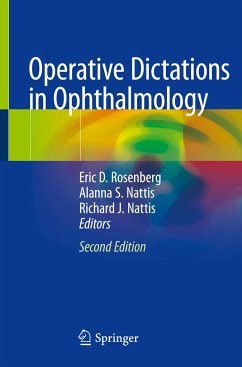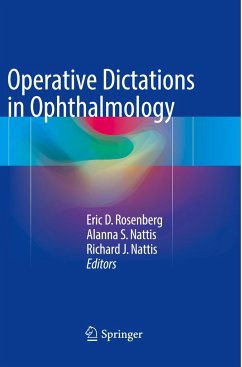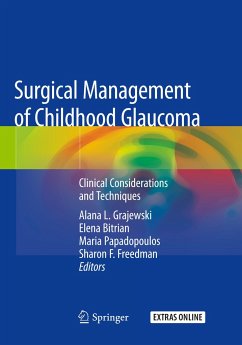Dr. Daniel M. Albert is an American ophthalmologist, ophthalmic pathologist, and ocular cancer researcher. He is presently Professor of Ophthalmology at the Casey Eye Institute, Oregon Health and Science University. Dr. Albert earned his medical degree and completed a residency in ophthalmology at the University of Pennsylvania, following which he was a research fellow at the NIH and then an NIH special fellow in ophthalmic pathology at the Armed Forces Institute of Pathology. He assumed his first academic faculty position at Yale University (1969-76), rising to full professor at the Yale Medical School. He then served as Associate Surgeon at the Massachusetts Eye and Infirmary, where he worked with Dr. David G. Cogan and subsequently directed the hospital's Cogan Eye Pathology Laboratory. He was Professor of Ophthalmology at Harvard (1976-83) and held that university's Cogan Professorship in Ophthalmology (1983-92). In 1992, Dr. Albert was appointed Chair of theDepartment of Ophthalmology and Visual Sciences and the Frederick A. Davis Professor at the University of Wisconsin School of Medicine and Public Health. He was the founding Director of the University of Wisconsin's McPherson Eye Research Institute, a position he held for ten years, until he moved to Portland, Oregon in 2016 to assume his current position. During his career Dr. Albert has additionally held visiting appointments across the United States as well as at the University of London and the Institute of Ophthalmology at Moorfields Eye Hospital and has been a guest lecturer in France and Japan. Dr. Albert's research has focused on ocular tumors, particularly melanoma and retinoblastoma. He has published over 700 peer-reviewed journal articles and is the author or co-author of forty texts and monographs. The great majority are in the field of ocular cancer. He served for twenty years as Editor-in-Chief of the Archives of Ophthalmology (now JAMA Ophthalmology) and on the editorial board of nine academic journals including the Journal of the American Medical Association (JAMA) and Ophthalmology (from 2013 to the present). He also wrote a series of blog posts for the journal Science between 2009 and 2013, offering career advice to students considering a career in medicine. Dr. Albert was awarded the degree Doctor Honoris Causa from the Universite Louis Pasteur in France in 1984 and also received honorary degrees from Harvard Medical School (1976) and the Yale School of Medicine (2019). He received the Best Medical Book Award for the 1994 (first) edition of Principles and Practice of Ophthalmology from the Association of American Publishers. In 2001, he received the University of Pennsylvania School of Medicine's Distinguished Graduate Award. In 2008 he was recognized with the creation of The Daniel M. Albert Professorship in Visual Sciences established by the University of Wisconsin School of Medicine and Public Health. In 2011 he was named Laureate of the American Academy of Ophthalmology, the society's highest honor. Dr. Albert has received numerous other awards, including the Albert C. Muse Prize, Association for Research and Vision's Friedenwald Award, Humboldt Research Award, American Ophthalmological Society's Lucien Howe Medal, Pisart Vision Award and the American Association of Ocular Pathologists' Zimmerman Medal. Dr. Albert served as a director on the American Board of Ophthalmology (1997-2005), Vice-President of ARVO, and President of the American Ophthalmological Society (2005-6). Joan W. Miller is the David Glendenning Cogan Professor and Chair of the Department of Ophthalmology at Harvard Medical School (HMS), Chief of Ophthalmology at Massachusetts Eye and Ear and Massachusetts General Hospital, and Ophthalmologist-in-Chief at Brigham and Women's Hospital. A graduate of Massachusetts Institute of Technology (MIT), she earned her MD from HMS and completed her ophthalmology residency and vitreoretinal fellowship at Mass Eye and Ear. In 2002, Dr. Miller became the first female physician to achieve the rank of Professor of Ophthalmology at HMS, and in 2003, the first woman to serve as Chair of the Department of Ophthalmology. She is also the first woman appointed as Chief of Ophthalmology at both Mass Eye and Ear and Mass General Hospital. Her clinical research interests focus on retinal disorders, including age-related macular degeneration (AMD). Dr. Miller and her colleagues at Mass Eye and Ear/HMS pioneered the development of verteporfin photodynamic therapy (Visudyne®), the first pharmacologic therapy for AMD. The group also identified the key role of vascular endothelial growth factor (VEGF) in ocular neovascularization, leading to the development of anti-VEGF therapies now administered to millions of people with sight-threatening retinal diseases annually around the world. Her current studies focus on the pathogenesis of AMD, including genomics, metabolomics, imaging, and functional measures; strategies for early intervention in AMD; and neuroprotective therapies for retinal diseases. An internationally recognized expert in the field of retina, Dr. Miller has published over 280 original articles and more than 95 book chapters, reviews, and editorials. A member of the National Academy of Medicine and the Academia Ophthalmologica Internationalis, she has received numerous honors for her work. Among them, Dr. Miller delivered the 2012 Edward Jackson Lecture for the American Academy of Ophthalmology (AAO), and was a co-recipient of the 2014 António Champalimaud Vision Award, the highest distinction in ophthalmology and visual science. In 2015, Dr. Miller became the first woman to receive the Mildred Weisenfeld Award for Excellence in Ophthalmology from Association for Research in Vision and Ophthalmology (ARVO); in 2018, she became the first woman awarded the Charles L. Schepens Award from AAO. Recently, Dr. Miller was awarded the 2018 Lucien Howe Medal from the American Ophthalmological Society and the 2018 Gertrude D. Pyron Award from the American Society of Retinal Specialists. Dimitri Azar, MD, MBA is the Chief Executive Officer of Twenty/Twenty Therapeutics, a joint venture established by Google/Verily and Santen. He is Distinguished Professor and BA Field chair of ophthalmic research and former Dean at the University of Illinois College of Medicine, where he pioneered the convergence of engineering and data science/artificial intelligence with basic and clinical medicine. Dimitri sits on the board of the Tear Film and Ocular Surface Society, the board of the Himalayan Cataract Project and the Verily SAB board. He also served as a non-executive director on the Boards of Novartis (2012-2019) and Verb Surgical (2015-2019). He completed his residency and fellowship training at the Massachusetts Eye andEar Infirmary, Harvard Medical School. He then moved to the Johns Hopkins Wilmer Ophthalmological Institute as assistant professor and founding director of the refractive surgery service (1991-1996). He returned to the Mass Eye and Ear Infirmary as the Director of the Cornea, Refractive Surgery and Contact lens Services (1996-2006). He was named tenured Professor of Ophthalmology at Harvard Medical School (2003-2006) and senior scientist at the Schepens Eye Research Institute, before joining the University of Illinois as Head of the Ophthalmology Department (2006-2011), and later as Executive Dean (2011-2018). He is an internationally recognized ophthalmic surgeon and a leader in basic science, corneal wound healing, angiogenesis, and clinically related vision research, making significant contributions to the treatment of corneal and anterior segment diseases and to advances in refractive surgery through mathematical analyses and applications of advanced optics. His basic science research on matrix metalloproteinases in corneal wound healing and angiogenesis was continually funded by the National Eye Institute R01 award between 1993 and 2021. Dr. Azar received his MD from American University of Beirut and his MBA (with high distinction) from University of Chicago, Booth School of Business. He also holds an honorary doctoral degree from the University of Balamand, as well as an honorary master's degree from Harvard. Dr. Azar is the author of more than 500 scientific articles and book chapters. He is the editor of 23 books in ophthalmology and holds more than 45 patents in ophthalmic pharmacology and bioengineering. He was named one of The Best Doctors in America or recognized among Castle Connolly's Regional Top Doctors in America annually between 1994 and 2020. He is a member of the Beta Gamma Sigma Honor Society and has served as Trustee for the Chicago Medical Society and for the Association of Research and Vision in Ophthalmology, and President of the Chicago Ophthalmological Society. Dr. Azar has received numerous named lectures and leadership awards, including the Life Achievement award by the American Academy of Ophthalmology, the Lans Distinguished Award, the Castroviejo Award, and the University of Illinois at Chicago Scholar Award and Distinguished Professor Award. Lucy Hwa-Yue Young, MD, PhD, FACS, is a multilingual vitreoretinal surgeon at Massachusetts Eye and Ear and associate professor of ophthalmology at Harvard Medical School. Dr. Young spent her childhood in Taiwan and Brazil before relocating to the United States, becoming fluent in English as well as Mandarin Chinese, Portuguese, and Spanish. She received her B.S. in molecular biology and M.D. from University of Wisconsin-Madison, then continued her training at Harvard University, where she earned her M.A. and Ph.D. degrees in biology. She conducted her ophthalmology residency and vitreoretinal fellowship at Massachusetts Eye andEar, Harvard Medical School. Dr. Young's clinical and research interests encompass numerous vitreoretinal conditions, including trauma-related complications, infectious retinitis (particularly AIDS-related retinal infections), diabetic retinopathy, and macular degeneration. As a senior scientist at Massachusetts Eye and Ear, she is conducting several lines of investigation to improve the diagnosis and treatment of ocular toxoplasmosis. Dr. Young has co-authored more than 100 peer-reviewed research articles, reviews, and book chapters, and has been a member of the investigative team for more than 25 clinical trial reports. Ophthalmology education is also a major focus of Dr. Young's activities where she serves as director of the Altschuler Ophthalmology Surgical Training Laboratory-a state-of-the-art training facility established in honor of Dr. Young. She also directs the Lancaster Course in Ophthalmology, which is based at Colby College in Waterville, Maine, and draws ophthalmology practitioners and trainees internationally. In addition to excellence in teaching, mentoring, and research, Dr. Young is recognized in Castle Connolly's Top Doctors since 2008 and Boston Magazine's Top Doctors since 2017.
